Learn to make income with a podcast
Join the 5-day training
Profitable Podcast Bootcamp
Come Hang Out!
Learn How to Consistently
Make Income With a Podcast
For Faith-Led Entrepreneurs
Join 5-Day Profitable Podcast Bootcamp!
Podcast Launch Checklist
Steps to start and launch a podcast from start to finish
Should You
Start a Podcast?
TAKE THE QUIZ
AND FIND OUT
STEP BY STEP PLAN TO START YOUR ONLINE BUSINESS
Complete Business Blueprint
Is My Group Coaching Program Right For You?
Choose the option below that best describes you!
Have a question?
Ask Stef a question about her resources
or program!
Will podcasting make you money?
Play around with my Profitability Calculator!
Meet Podcast to Profit Alumni
Students and graduates who are profiting from their podcasts
from psalm chapter 18
Spiritual Battle Plan
defeat the enemy, strongholds and spiritual warfare
Hey Friend!
Today, we are digging into positive discipline, patient parenting, and instilling emotional resilience into your kids. Ashley Seling, parenting coach and positive discipline educator joins me to help us dig deeper into why this type of parenting can transform your kid’s behavior from tantrums to tranquil.
Ashley goes through a few live examples with me from my own #boymom house and I know her knowledge and unique parenting style will help you see the brighter side of motherhood, sooner than you thought possible.
If you’ve been wanting to parent from a heart-led place, a biblical space, and know something’s gotta give – this one is for you.
I pray this blesses you!


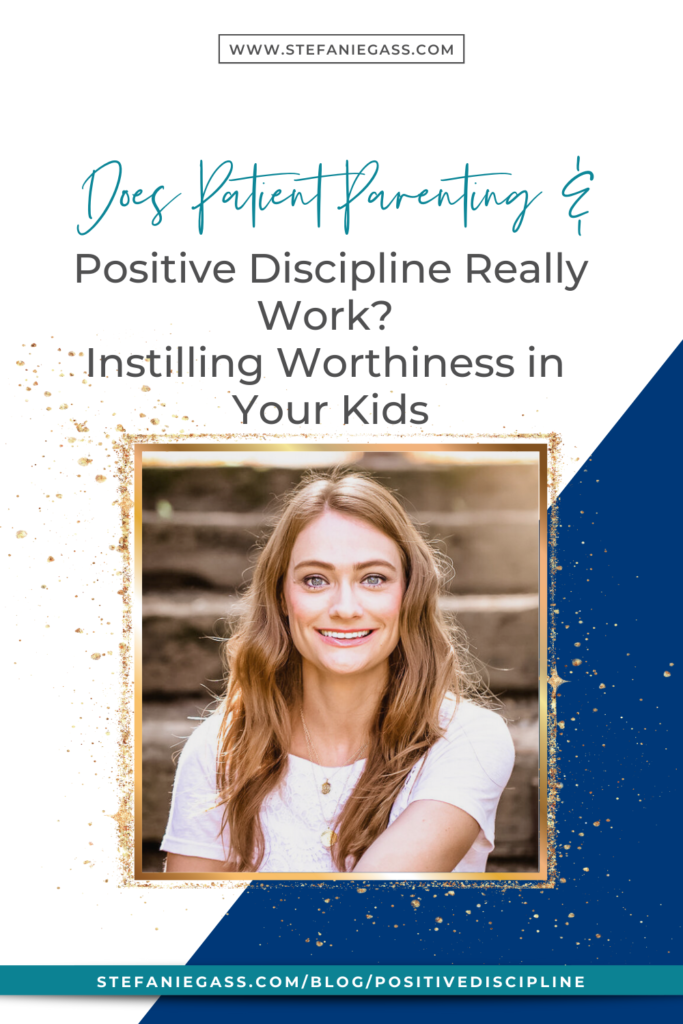
FULL EPISODE TRANSCRIPTION:
(00:00):
What’s up, kids? Happy Monday! Today, I have a special treat for you. We are gonna be talking about positive discipline and patient parenting and all of those amazing things that you hear other people talk about.
(00:18):
I am really digging in with Ashley Seling today around how to be more patient and confident as a mom, and how to do this motherhood thing in a way that feels really good to us.
And how to really become more calm and confident in all of those crazy stressful parenting situations.
(00:35):
And Ashley even goes through some live examples with me of stuff that I’ve been dealing with my kiddos. Why are we talking about this today?
Because scripture tells us that we are called to be teachers. We are called to lead, shepherd, and teach our children the way.
(00:50):
And I don’t believe that we can do that from a frustrated place, from a place of lack, from a place of real discomfort in the way that God is calling us to parent.
(01:01):
And I know that it’s hard, the times have changed, what used to work in generations past the parenting by fear that really doesn’t land anymore.
(01:12):
And I know if you guys are anything like me, you really struggle with how to get them to listen to you and to pay attention while creating a respectful home where everyone is treating each other with love and kindness. And that’s what I want for my home.
(01:26):
And I’m sure that’s what you want for your home as well. And so Ashley really comes in today and she just really blesses us with a lot of tangible tactical stuff that we can implement into our motherhood right away into our conversations with our kids.
(01:39):
She does some great examples and I know you guys are gonna absolutely love her. She’s so much fun. So grab a notebook and pen because this one is going to bless you big.
(01:52):
Okay, friend, do you want to get clear on your calling? So you can start an online business God’s way. I invite you to freeclarityworkshop.com. Learn how to get really super clear so that you can finally build a sustainable business.
(03:29):
Or are you ready to launch that podcast? You have clarity. You’re like, I know what I know, Stef. I just don’t know how to do the things. You wanna scale organically.
You wanna generate endless leads from behind a mic instead of in the DMS scouring Facebook groups, trying to do all these hard, complicated things, trying to build reels and hop from platform to platform.
And you’re like, I just wanna do this the easy way I wanna learn what you have done.
(03:54):
I wanna know how to build an organic business evergreen, using podcasting, I invite you to Podcast Pro University. All of my courses are at stefaniegass.com/courses. I invite you to come to check those out.
The best thing I ever did was say yes to God’s purpose and call over my life and then be obedient in the way that he was asking me to build the business.
(04:19):
Which was to lay down the hustle, to get off of social media. Guys, I haven’t been on Instagram in seven or eight months, and it is the most freeing thing in the world.
I truly am able to run this business in 26 to 32 hours a week and what God can do through your voice, through some strategy that you learn in Podcast Pro University.
And through all that clarity that you get in Clarify Your Calling when we build out the brand together, it really is limitless.
(04:48):
And it’s something that can create space and time for you to build a business around your family, to turn off and unplug on nights and weekends, or whenever you want to truly, and to still make an impact and income still make revenue from passive courses or a coaching business on a daily basis. It is truly unreal.
(05:08):
So if you wanna follow along with my business model and make scaling something easy head to stefaniegass.com/courses. I’ll meet you there.
(05:18):
Hi, Ashley, welcome to the podcast!
(05:21):
Thank you so much for having me, Stefanie! I’m so excited to be here.
(05:26):
I talked a lot about you in the introduction, but what I’m so excited about is bringing someone on totally different than what we normally do and talk about.
It’s completely different guest, but it’s something that we are all truly dealing with is trying to run these businesses and raise these little kingdom kiddos, but they’re kids and it gets hard.
So that’s why we have you on today. Who are you and what do you do?
(05:55):
Absolutely. I’m Ashley Seling. I’m a parenting coach and certified positive discipline educator. So I help moms and dads too, really get clear on how they wanna parent their family so that they can feel really proud of the way that they parent to raise healthy, balanced, successful children.
And no matter the stage that we’re in as parents, there’s always something that changes. So the parenting that I teach and that I coach really applies to all ages of kids. And I think that’s really important because at the root of parenting kids don’t come with a manual.
So we need some plans or a strategy of how to help our kids be great successful kids and then turn into successful adults.
(06:51):
For sure. How did you become a parenting coach and a positive discipline coach? I’m so curious.
(06:59):
If you had asked me before I had kids, I never would have thought I’d be here right now as a parenting coach, but it originally started as I led mom groups for new moms.
And I became really passionate about supporting moms and going through this journey after having kids in the fourth trimester, what I call it. And I called my doctor more times after I had my baby than I did my entire pregnancy.
So I just felt there was this beautiful, great need for a connection for moms and also just a safe place where they could learn. And over time, as my kids got older, it turned into parenting and I’ll never forget there was a distinct moment.
My son was about two at the time and he told me he hated me. And it just, oh man, that stung so bad, it hurt. And I just knew there needed to be a change in the way that I approached my parenting.
So at that point, I really dove deep into parenting and expanded my new mom support group into parenting programs, and then became educated as a positive discipline educator so that I can help moms in that formal capacity as well.
(08:33):
That’s so hard. When we see our kids almost retaliate in this way by using hateful language or anger and crying. Even yesterday, my older son, my little son, so I’ve Landon and Miles and the older one is eight and a half and Landon is five and a half.
And Landon has a bear. And it’s basically his favorite thing ever, his little stuff bear, well, Miles was gonna punch bear. We walked in on this whole thing happening. And I’m like, Miles knows better than that.
And so my husband, thankfully wasn’t right there, cuz he’ll be like, and I was like, Miles, that really hurts my heart that you were gonna do that to bear. I need you to go to your room and kind of think about what kind of choice that was.
(09:20):
And I’ve taken a patient parenting course, but I’m not committed. So I’m so excited to talk to you about this today.
And he goes into his room and about 10 minutes later, he’s like, mom, can I talk to you and Landon? So we go in there and he’s like, Landon, I’m really sorry that I did that to bear. Then Landon was like, and he’s five and a half and he has a little tiny voice. And he goes, I forgive you. And then they hug.
(09:43):
So sweet!
(09:46):
And then I told Brad, I’m like, did you see that? When I talked to Miles in this way, I always know when I react that way, that it always works better than when we come at him.
Cuz then he immediately elevates to our level. He immediately gets defensive and there’s this battle in the house going on. And so we see the differences in parenting from this patient kind place. But why the heck is it so hard, Ashley?
I’ve taken the course, I’m sure that people have heard of positive and patient parenting, how come it doesn’t stick? Why aren’t we just choosing that on a daily basis?
(10:22):
That’s such a great question because I think a lot of moms ask themselves that same question. Why can’t I get this? I know what I’m supposed to do. But then when it comes time to do it, it’s like, huh, I can’t because I’m frustrated or I’m upset.
And the reason why is, and this also applies to children too, we are all triggered by something that is causing us to have a reaction to the things that our kids are doing.
So for parents, moms specifically what I like to call parenting triggers and when our kids are acting out, our own personal parenting triggers are coming up.
And if those parenting triggers aren’t healed or a deep dive hasn’t been looked at with those triggers, then of course we’re still reacting in a way that we don’t really want to because those triggers haven’t been fully healed.
(11:26):
So anytime we see our kids act out, especially if it’s something that we may have done as a child that we never got away with, we’re gonna react much quicker and stronger to our own children behaving in that way because our inner child is saying, Hey, we never got away with that when we were a kid, when I was a kid.
How come my kids are doing this now? They’re not gonna get away with it either. So in a way, and I’ll say this in a loving sensitive way, in a way when we react to our kids, it’s our own inner child having a tantrum because part of us wasn’t healed from whatever happened in our own childhood.
(12:14):
Yeah. Oh, wow. That goes deep, real fast. I hope y’all are ready for this ride.
(12:19):
When I think of myself, one of the things that immediately is triggering for me, and I know so many of the moms that are building these businesses is like, they just don’t listen. That’s something that I’m hearing so many times or they aren’t behaving. They’re not listening.
And I think there’s lots of layers to that coming out across the board. But I know for me, I got a look and I listened cuz I had fear around my dad as a disciplinarian. And so I’m like, Ugh, you listen immediately. Well, my kids don’t have that. They’re not afraid. And so they choose not to listen right away.
And so then you go into this, okay, let me patient parent, which then takes so much time. I’m trying to build this business and I’m focused on I have this one hour or whatever that might look like for the mom’s listening and they’re not listening or that behaving or they’re on this crazy tantrum.
I’m asking them to be quiet and just gimme this one hour and then you lose your mind and then you yell. And it’s this constant cycle of this thing going on. Dissect that scenario, Ashley, and tell us the parenting trigger. Why is that happening?
And then what would you as this parenting coach and positive discipline coach tell a mom who’s going through that over and over again. What can they do differently? Give us some tacticals around this.
(13:35):
Absolutely. So what’s to dissect this a little bit here. It’s really helpful to understand the exact thought that a mom is having. So in your example, if a mom has said an hour to work and then during that hour, her kids are pastoring her, bothering her, interrupting her sacred one hour that she really has to work.
That’s going to be really frustrating because the trigger that’s coming up is inadequacy. I don’t have enough time. And then when the kids aren’t continuously listening, now it’s like, I’m not a good enough parent.
So this thought that comes up, it’s playing in multiple ways not only with herself but with her kids and her business as well. And then when this happens over and over again, it’s like, oh my gosh, I’m just gonna lose my cool, because you guys need to listen and you need to listen now.
(14:31):
So that’s the thread where the mom is just quickly, okay, let’s get this done because when I yell, they listen. So my best tip, tangible tip is to set your kids up for what to expect. If you have that one hour of time, ask your kids, what can you do while I’m working for one hour?
This one hour is mom’s time to work. What are some ideas of things that you can do while I’m working? And this can apply to even kids that are a little bit pre-verbal.
So, this question can be asked of teenagers, not that teenagers are necessarily coming and bugging mom at this point, but that’s a question that can be asked at any age. So what are some things you can do while I’m working?
And really setting the boundary of from this time to this time, mom is going to be busy. Before that time comes, is there anything that you need from me before I go into my office and work? Really setting up the boundary of what’s to come and what the child can expect.
(15:48):
I love that. Were you going to say something else? Go ahead.
(15:53):
Just one more thing, if they do end up interrupting during that time cause I think that will still happen, especially if this is a new boundary that’s coming up saying, okay son, we talked about this. What are the things that you said that you could do while I’m working?
And really maintaining that boundary because oftentimes when a child isn’t repeatedly listening, it’s a boundary issue. It’s not actually a listening issue. It’s a boundary issue. So setting up effective boundaries and sticking with them will be the best thing for situations like that.
(16:35):
That is so great. And when I think about my own boys, in the past, we had a lot more, and now, of course, they’re a bit older now. So that also helps as your kids get older and they’re able to really conceptualize and understand the boundaries.
But for us, it’s like, okay, I’m taking 15 minutes, and hopefully, I don’t have to work when they’re here, but that’s gonna be inevitable that sometimes you do. So when I go into that, I have 15 minutes and I do the big snack plate.
And then that’s when they do get their hour of tech time. That’s something they look forward to all day long. Or, Hey, you get to have it a little early today. And they do a learning app during that time which is so fun.
(17:16):
I’m glad to hear I’m doing some things right, Ashley, cause I’m like, what else do you need? Remember if my door’s shut, I’m in a meeting. And I’m gonna need you to wait if it’s an emergency, you can come in.
And so I’ve set those expectations and now we really don’t have any trouble anymore with this. But I do know a lot of moms in my group do. This is so helpful.
What I heard you say, for everyone taking notes, is you are reacting from a trigger that has happened to you as a child. So maybe looking at that, really digging, dissecting that why is this truly your story. Do we really wanna parent the way our parents did?
Probably a lot of us are gonna say no to that. And then really thinking about how we can set our kids up for what to expect. And then I loved what you said to empower the kids, empower the kids to come up with their own plan. What do you wanna do for an hour?
Instead of you will do this or you won’t come in well now we’ve immediately set ourselves up for failure cuz of everything we say, don’t do it, they’re gonna do it. So empowering the kids.
And then I love to maintain the boundary. That is so helpful. I love this. Let’s do another example if you’re open to that.
(18:25):
Absolutely.
(18:26):
So let’s say that we have a mom that is a work-from-home mom completely. So she’s working from home and she is trying to juggle nap time, kiddos, working in the cracks of the day. Let’s say her kids are not old enough to understand this boundary concept.
Let’s say that they’re one and three and a half, that was probably the hardest time for me cuz before they’re nursing and you can work while you’re sleeping baby, but then you get to this weird phase of I can’t really truly understand you quite yet. And I can’t literally give you hours of time, mom.
So what happens here? Cuz this child is probably really demanding a lot of attention, Ashley. The mom is trying to work in tiny cracks, which means she’s probably highly frustrated, pulled in all directions. Isn’t really moving the needle in her business most likely, cuz she’s in a season of motherhood.
So what’s happening in this household and what can this mom do maybe to stay grounded. And I also wanna dig into what the heck is positive discipline in a minute, but what can they do to stay in this mindset of patient kind parenting when your kiddos are younger?
(19:41):
It’s a good point. I remember that season of my own motherhood being so challenging too. And I didn’t always have all of these tools.
So I think the best advice I could give for someone with younger kiddos, kids that aren’t quite verbal yet and that age, one and three it’s so stressful is to set realistic expectations of yourself and know that rarely does anything in motherhood go according to plan.
And I get, there might be listeners rolling their eyes at that but it’s true. I’m a total overachiever. I wanna do all the things all the time. And I have to reel myself in to realize, okay, but let’s see how that’s gonna fit in with also spending quality time with my kids.
(20:39):
Exactly.
(20:41):
And not adding too many to-dos to my list and focusing on what is it that I wanna bring out today? How do I wanna feel at the end of the day? And I hope this is helpful because I do remember that stage being really difficult.
If I could go back and tell myself one thing, when my kids were that age, it would be go easy on yourself and set realistic expectations for yourself. When there are those cracks in the day, choose, do I wanna work on my business right now? Yes. Then let’s run.
If I don’t truly, if I’m not a hundred percent committed to working on my business at that moment, then I’m gonna do something else that’s gonna serve me so that I can show up when my kids are awake from a nap or when they’re done with their tech time. So that I can be the version of me that I wanna be.
I know self-care gets tossed around so much, but I truly believe that when we have full cups, then we can pour into our businesses, into our families, and into our faith with so much more love and hope.
I’m gonna get misty-eyed here. But when we can show up fully in taking care of ourselves, we’re gonna do so much better in all of the other areas.
(22:03):
That’s so true and I am 100% behind you. And I’m constantly saying to these women, what do you want your life, your calendar, your schedule to look like. One of my biggest regrets in that season of the newborn to three was not doing less in the business.
Knowing if I would’ve looked back and know where I was gonna sit today, I’d have been like, you’re fine, chill out and enjoy this very short, beautiful season. I love your realistic expectations of yourself and of your business.
And just really coming from this space of being present in the season that you’re in and knowing you’re not probably in a sprint in your business season when your kids are one and three and you’re home with them, working from home a hundred percent and that’s gotta be okay.
Something has to give. And so what’s gonna give kids or your business? I hope you choose your business. So that’s really great. So talk to me a little bit about it, I knew what patient parenting is and positive parenting are, but maybe let’s just spend a second and define that for them, Ashley.
What does that even mean? And how do you make a complete 180 shift in the way that you’ve been raised, the way that you’ve been already, and hopefully, and no shame in any of this, you guys, you know, we all find our way and it’s never too late.
Ashley, I’m sure that you hear like, oh, no, I’ve been doing this wrong the whole time. How do you actually make those changes and stick with them? So what is it and then how do you make those changes and change what’s really been ingrained in you?
(23:43):
Absolutely. So I teach a little bit different of a parenting style. So at the root, I have found that, as I mentioned earlier, parenting triggers are one of the most important pieces to the way that I teach positive parenting.
Because it all revolve around getting to the root and at the root of any person, there is an innate need to feel significant and belonging, and also making a contribution.
So positive parenting, like textbook definition, would be more along the lines of taking the shame and blame out of parenting because what worked, maybe when we were kids, doesn’t work today.
And it also doesn’t feel good. So having a positive approach to parenting, encouraging versus just praising. And I know that might open a counter word right there, but there’s just the approach is more positive and encouraging in nature. So there’s no spanking.
Sure, I understand spanking happens. And zero shame if you are in that cycle right now, but typically with positive parenting, there’s no shame, no blame, no punitive punishment.
So removing punitive punishment and replacing it with mistakes or opportunities to learn and how can we work together?
There’s a lot of partnership in this type of parenting, working with your child and teaching them how to think versus telling them what to think.
(25:29):
That’s really great. And probably for a lot of parents listening who were…, I was just brought up with you get a spank in, you’re getting a little flick in the head, you’re gonna be in trouble.
There was a lot of fear that made me behave. Then that really manifested itself in a lot of different ways of rebellion the older that I got. And then really looking at, did that actually work?
Yeah, sure, I may be behaved and listened, but what other damage did that create in my life and in the things that I turned to during my teenage years and the type of people that I turned to and then why?
I love this work that really looks at your triggers because everything goes back to who you were and how you were raised.
And then looking at my own boys, we’ve gone through lots of different discipline trials and errors, and really looking at those seasons of things that did not work or that felt like a bandaid, okay, it worked for a minute, like a timeout or a spanking or something, but this innate behavior actually didn’t change.
Versus when we have these more rooted conversations you’re talking about and Hey, let’s talk about how we could have handled that differently. Or why do you think that that choice hurt someone else?
And we made it bigger than themself. And it takes a lot more patience on our part as parents to get down on their level and have these deep conversations with our kids and wonder did it even work. But those are the ones where I actually the change in my boys.
(27:04):
I totally agree.
(27:06):
For Miles to react the way with the bear last night, that wasn’t the first time we’ve talked about how did that make Landon feel and why would you do that if that would hurt your brother’s feelings and hurt his heart.
And then all of a sudden it’s like, oh, his heart has a 180 versus Miles, don’t do that. Well then he’s gonna do it tomorrow because it had no meaning to him.
(27:28):
Absolutely.
(27:29):
It’s just so good. So amazing. So I love that so much. Now, we hear you, oh my gosh, that sounds so great.
Having these conversations with our kids and getting to the root of my stuff, but putting it in to actual practice, Ashley, is so much easier said than done.
How does someone actually put this stuff into practice and how long does that take? And what does that even look like?
(27:56):
I think someone will notice a really big shift in two weeks time of being consistent with their approach and it’s like potty training in a way.
When we’re ready to potty train our child, or when our child is ready to use the potty, we are setting aside time in our calendar to potty train.
And when a mom is ready to implement this type of parenting, approaching it almost as if you were approaching potty training and setting aside the time on the calendar, I mean, potty training takes time. And also this type of parenting is a different language.
So knowing that and going in feeling okay, we’re gonna have some accidents along the way, just like we would with potty training and it’s okay. We’re just working towards a more effective way for our family.
(28:55):
And every family’s a little bit different. So something that works for your family or something that works for my family might not work for another family. And that’s okay too because every family has its own needs and the children have their own emotional needs.
So really fine tuning the approach based on the family’s needs, I think is important as well. I’m a big fan of books. I love parenting books. However, for anyone listening, if book doesn’t work for you, it’s okay. Because it’s not giving you direct feedback.
So I just wanted to add that in case people are feeling hopeless after reading a parenting book. A parenting book doesn’t necessarily have all of the answers for one family. So I think it’s really common to turn to parenting books and things like that, or TikTok videos to get parenting advice.
(29:52):
Hopefully not.
(29:52):
Someone told me that recently. I’m like, oh, okay. Interesting. But I hope that answers your question. I started to go off on a little tangent here.
(30:04):
I loved it. Two weeks. And I think that really shows go slow to go fast. Make the time to be intentional. Cuz maybe that’s where, for me, I did this course and I committed to this thing, but then I was kind of like, this is literally taking a lot of time and I just didn’t carve it out.
And so there I was back to the same old parenting and then like sprinkling it in. Like I said, did a great job yesterday, but the day before who knows, Ashley? It’s not consistent. And like you said, you know what to do and you know how to handle something, but sometimes it’s like, I have two minutes and like you said, it’s gonna get the fastest results, slap a bandaid on a situation. And then it’s just gonna fester and bleed tomorrow. Stop.
(30:49):
Exactly. That’s such a great point, Stefanie.
(30:53):
The next thing that I think of going back to my own situation and probably a lot of the women listening, how do you get your spouse on board?
Because having my husband oh, let’s sit down and have a conversation about why we shouldn’t whatever, poke your brother till he’s screaming, bloody murder.
And Brad’s over here, his eyes twitching ready to lose his mind. Are you kidding me? You’re just gonna talk to them for 30 minutes? He can’t stand it. And he watched for a while.
And then he was like, this is ridiculous. How do you get your spouse to onboard with something that is maybe something that they just truly don’t buy into?
(31:32):
I love this question. And you might not like my answer, but I’m just gonna go for it. Someone’s spouse might not ever be on board with this type of parenting. And I see that holding a lot of moms back.
And it doesn’t need to, because the way that we parent as individuals to our children is what is going to form our relationship with them.
So if a mom is on board with positive parenting, conscious parenting, mindful parenting, whatever they might call it, that’s up to them so that they can build the type of relationship that they want with their kids, because how their spouse parents their children will affect the spouse’s relationship with the children.
So in the long term, what type of relationship is it that a mom really wants to have with their kids? And don’t let your spouse hold you back from having that just because they’re not on board with this type of parenting.
(32:30):
That’s good. And, what’s interesting about that, Ashley, this is the same as in y’all’s faith walk. Some of your spouses aren’t where you are in your faith.
And we say, you just show up and you focus on your relationship with God and then let God work through you to start to make those changes in your spouse.
(32:50):
One hundred percent.
(32:51):
Same thing here, which I think is magical. I love that advice with everything. So I wanna shift, for the end of our conversation into this positive discipline, cuz I’ve never heard that phrase before, Ashley.
I’ve never heard positive partnered with discipline. What is that? And then give us some examples.
(33:10):
So positive discipline. There’s so many terms that can be used. And that really is just my official designation, positive discipline educator.
But positive discipline again, we’re looking at taking the shame and the blame out of parenting and how can we approach parenting in a way that inspires our children to make good choices based on their internal intrinsic desires and needs.
So kids are gonna make choices based on external circumstances. So an external circumstance is a child being spanked to not do XYZ action again. And now the child is not going to do that not because they’re intrinsically motivated, but because they’re externally motivated, they’re afraid of being punished.
So positive discipline is all about teaching kids to be internally motivated, to make good choices instead of the fear of being punished.
(34:18):
And what I love about that so much is the difference of shepherding your kids versus forcing fear into your children, which in the Bible, it literally talks about show them the way and they will return to it.
And if we’re going to show our kids the way, you can’t force people, and we know this, you can’t force someone to change. You can’t force someone to do anything they’re not going to rebel against in the future.
I love this intrinsically teach them the way that they should go. We have to shepherd our children. And that begins with this internal, and that’s a lot of probably conversation.
That’s a lot of also probably leading by example. How you lead your life, how you react to your spouse and to yourself and to your children. And I just think that that’s so awesome.
I love it so much. So if you had one last piece of advice, Ashley, for this working mom, who’s trying to build this incredible kingdom business and raising her littles regardless of their age, what would you have to say to, to pour some encouragement into them or to some wisdom about the journey of lovingly intrinsically leading their kiddos with this positive patient mindful parenting?
(35:45):
I think my one short sentence would be, you can so do this even when it feels hard, I know that you can do this and parent in this way and still lead an amazing business because I’ve seen it time and time again. Just the other day I had a client tell me, I didn’t realize I could be this calm.
And I’m like, I know, I know you didn’t and here you are, aren’t you so proud of yourself? Remembering who will future me be proud of? What actions can I take today that future me is gonna be really proud of.
And you can do this. You can parent in this way. I just know if this is the desire you have, and this is how you wanna parent you can a hundred percent do it. It’s so attainable.
(36:42):
Amen. Well, you have poured so much wisdom, I have three pages of notes. I’m so excited to keep learning more from you. It’s just been a blessing to chat with you today.
Ashley, where can everybody find you and connect with you and you guys, I was telling Ashley that she needs to start a podcast.
So if you guys agree with me come over in the Facebook group and tell Ashley that you agree that she needs a podcast.
(37:06):
Yes. It’s time. I’m gonna take a look into what we were talking about earlier. So people can find me, my website is ashleyseling.com and I’m on Instagram, it’s @ashleyseling on Instagram.
And I also have a Facebook community group that I just pour as much as I can into the group. It’s called Calm Moms: Parenting with Patience and Confidence.
(37:37):
It’s so just honor that you spent this time with us, my friend, and thank you for blessing us today.
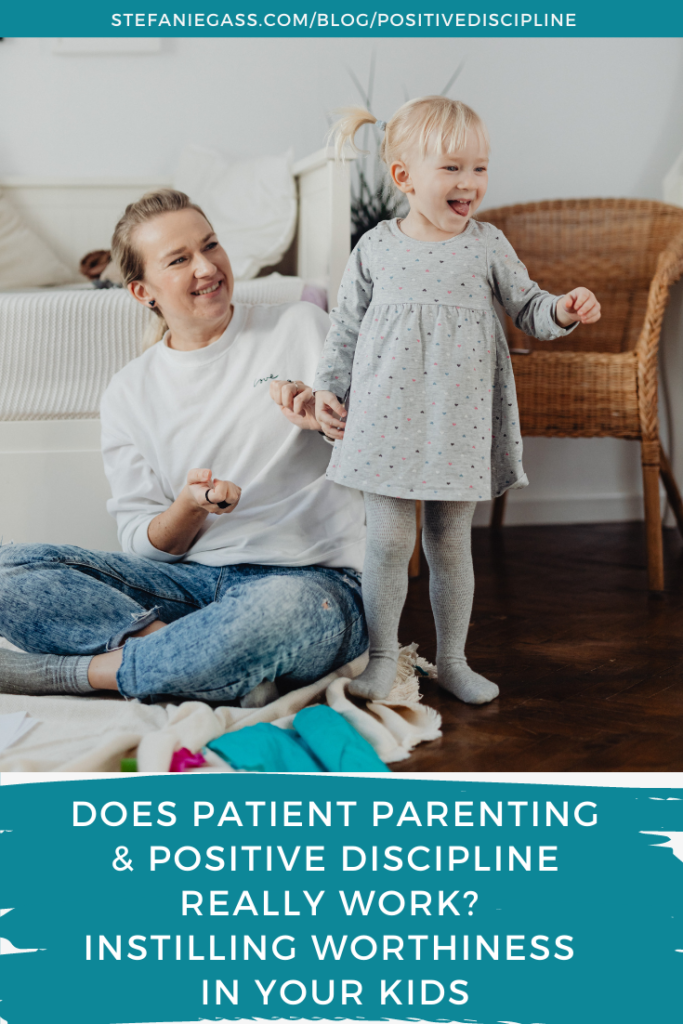

Learn How to Consistently
Make Income With a Podcast
For Faith-Led Entrepreneurs
Profitable Podcast Bootcamp
READ MORE
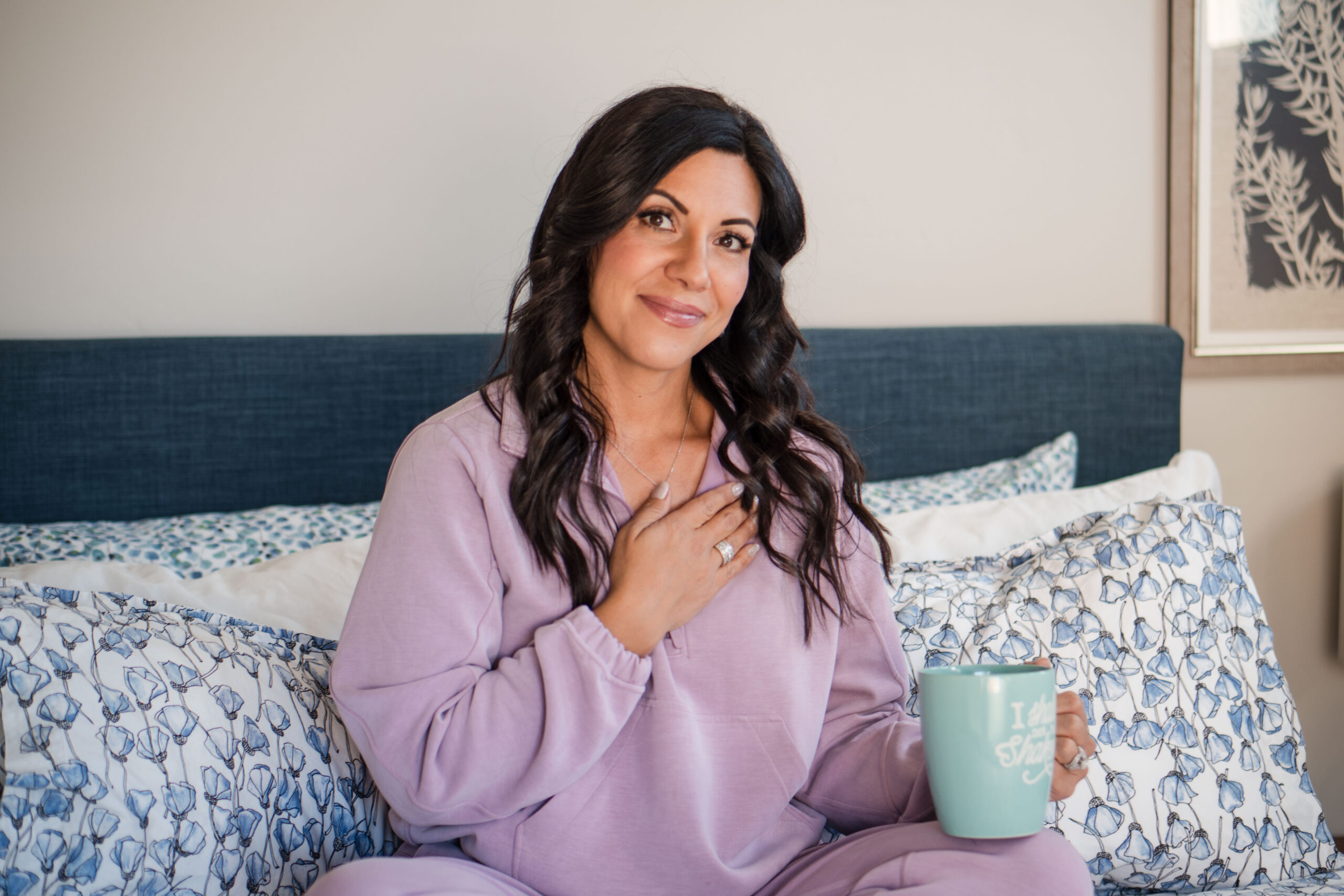
Here are 6 ways I’m scaling my business to 7-figures God’s way and not the world’s way, all without social media.

READ MORE
It’s been a hot minute since we’ve had a conversation around whether podcasting is right for you. A few people recently asked me, “How do I know for sure that podcasting is right for me or my business model?” That’s what I will discuss with you today.

READ MORE
As a 7-figure Christian business owner, Stef shares biblical business advice straight from the book of Proverbs.
READ MORE

This post is for my MLM Girlies or anyone marketing a personal brand or physical product. It’s a live coaching session with one of my students about having a personal brand versus product branding, and what this might look like for you.

READ MORE
Join me as I chat with Podcast to Profit graduate, Monica Topete, on going from burnout to a top 2% podcast and hundreds of organic leads.
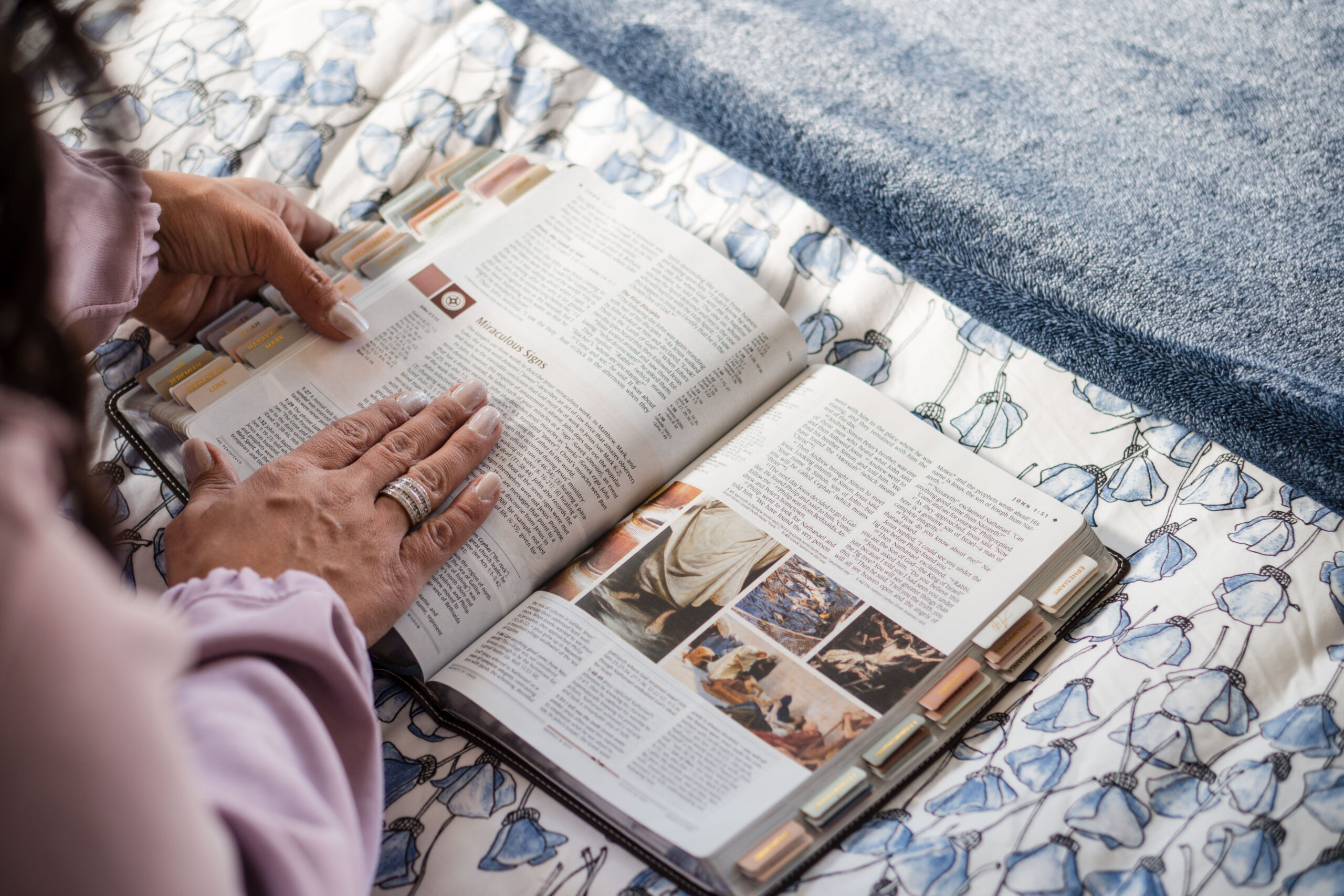
READ MORE
Have you wondered how to use the Bible in your business? What if I told you the best strategy isn’t another mastermind, launching another thing, or listening to another podcast? The best strategy comes from knowing how to use the Bible.
READ MORE
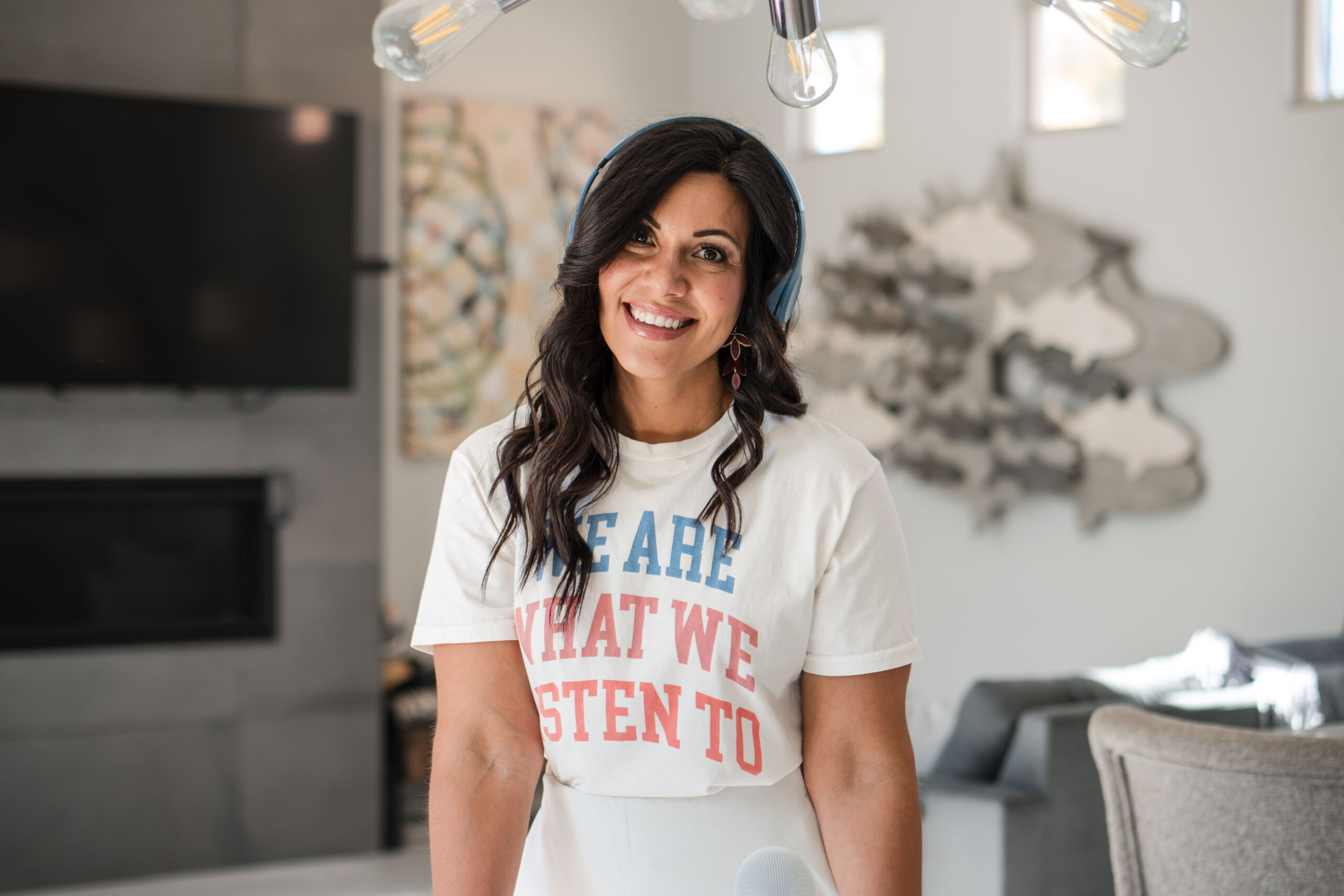
Join Stef as she discusses five ways you can hear from God in your business. The Holy Spirit will lead you if you are paying attention!

READ MORE
If you’ve ever wondered how to go from zero subscribers to millions with your podcast, this post is for you. Whether you’re just starting with no subscribers or you’ve already launched but are struggling to grow, I’ll break down all the things that will help you get your podcast to flourish and be that vessel of growth that you have been praying for.

READ MORE
I’m talking to my Podcast to Profit graduate about how her podcast became discoverable around the world after she joined my program.
READ MORE
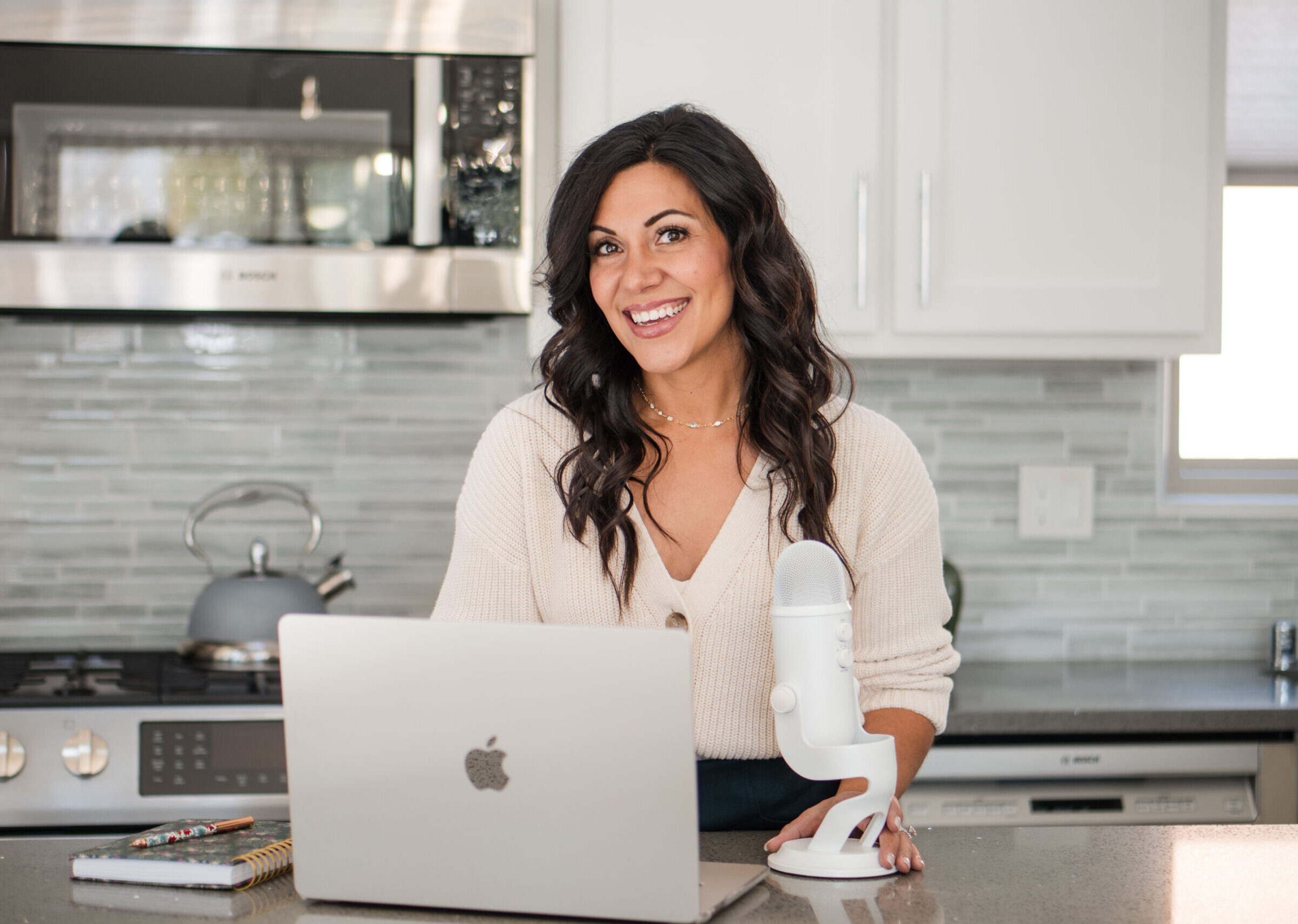
Have you ever wondered how much money a podcast with just a thousand downloads can make? It’s probably more than you think, but not in the method you think.

READ MORE
Join me as I coach my Podcast to Profit student on whether she should rebrand her podcast or stay true to what she already does so well.
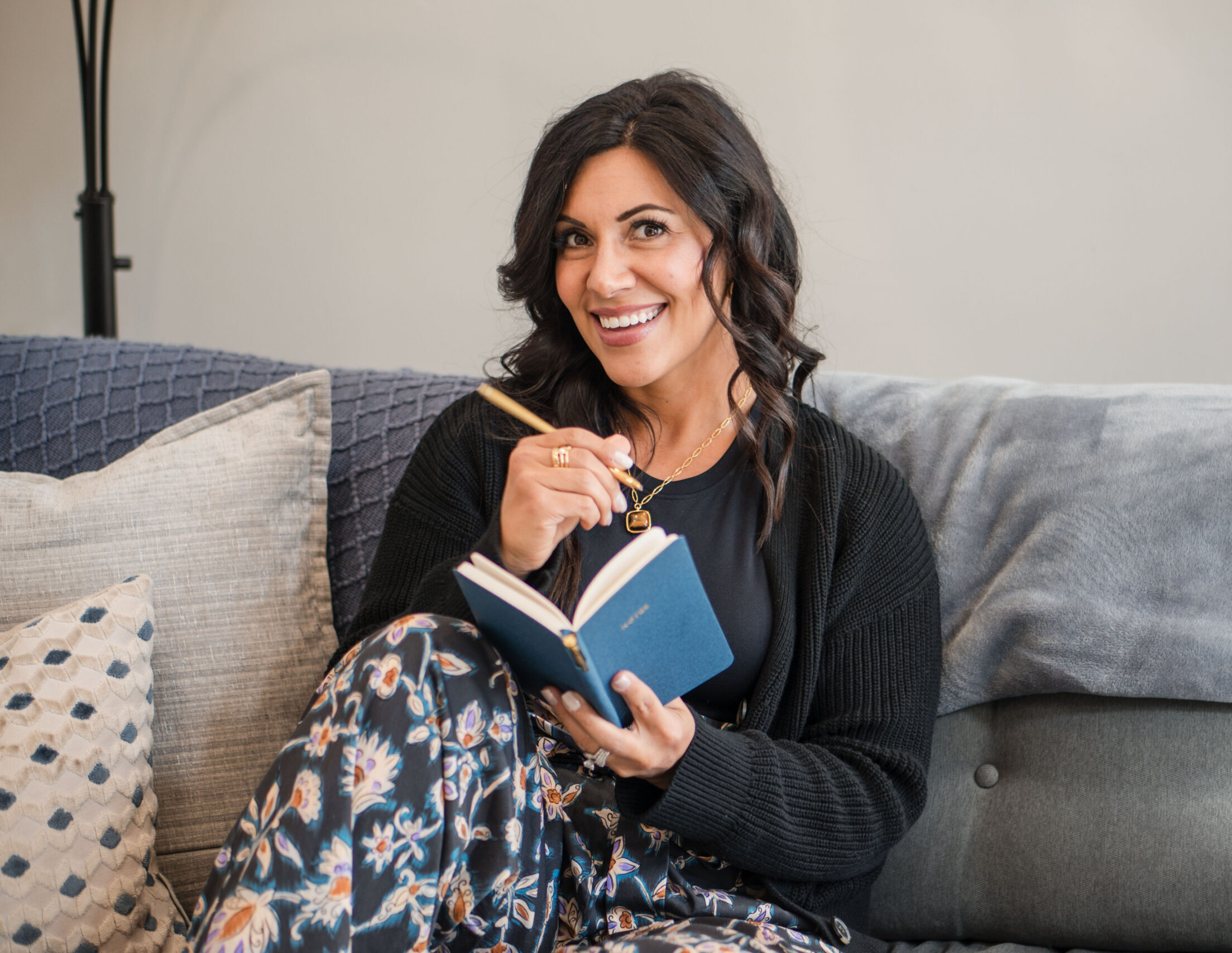
READ MORE
As Christian entrepreneurs, we must pray to God and not run our businesses on our own. We must position God at the center of every decision.
Come Hang Out!
Learn How to Consistently
Make Income With a Podcast
For Faith-Led Entrepreneurs
Join 5-Day Profitable Podcast Bootcamp!
Podcast Launch Checklist
Steps to start and launch a podcast from start to finish
Should You
Start a Podcast?
TAKE THE QUIZ
AND FIND OUT
STEP BY STEP PLAN TO START YOUR ONLINE BUSINESS
Complete Business Blueprint
Is My Group Coaching Program Right For You?
Choose the option below that best describes you!
Have a question?
Ask Stef a question about her resources
or program!
Will podcasting make you money?
Play around with my Profitability Calculator!
Meet Podcast to Profit Alumni
Students and graduates who are profiting from their podcasts
from psalm chapter 18
Spiritual Battle Plan
defeat the enemy, strongholds and spiritual warfare
look around
© STEFANIE GASS LLC 2026 | ALL RIGHTS RESERVED | SITE CREDIT | LEGAL
Come Hang Out!
Come listen to a top 20 podcast for Christians who want to grow a simple, successful online business.
Come listen
to the go-to podcast
So glad you're here!
Visit the resources section and find out which software I personally use and recommend. Become an affiliate, or discover other trusted resources I have to help you succeed on your business and faith journey.
Check out all my recommended resources
including software, affiliates, and freebies.
Read the latest over on the Stef Gass Blog. Tons
of articles to help you succeed in life and business.
Meet Stefanie and learn more about her life, journey, failures and family. Plus, a glimpse of her amazing team.
Book Stef for in-person or virtual events! She will
inspire and educate your audience with her training.
Find out everything your need to feature Stef—bio, photos, and details—ready to inspire and educate your audience
Meet some of the students who are profiting from their podcast
Contact us with questions, concerns,
testimonies, or requests here.
I can't wait to help you get clarity on your calling, grow your business, launch a podcast, build a course, or scale and get visible. Check out the Stefanie Gass School. No more frustration or overwhelm. Just a simple, step-by-step framework to get you where you want to grow.
Get clear on your calling in 4 weeks or less so you
can start your online business with confidence.
Apply for my 6-month group coaching program for podcasters! Build your offer, learn to sell, and scale.
Visit the Stefanie Gass School to discover what step
you're on and and learn which course is right for you!
Launch a podcast in less than 30 days! 12 simple
steps to go from idea to successful podcast.
Let's work together!
WORK WITH ME
Clarify Your Calling
Free Workshop
Watch this workshop and get
clear on your calling so you can start
an online business! Hop on this quick,
35 minute free training and map out
your next steps!
Podcast for Growth
Free Workshop
Watch this workshop and learn how
podcasting works to make money online! Find out why podcasting is the best long-form content outlet and how it can drive more leads than social media.


Leave Comment or Question Below